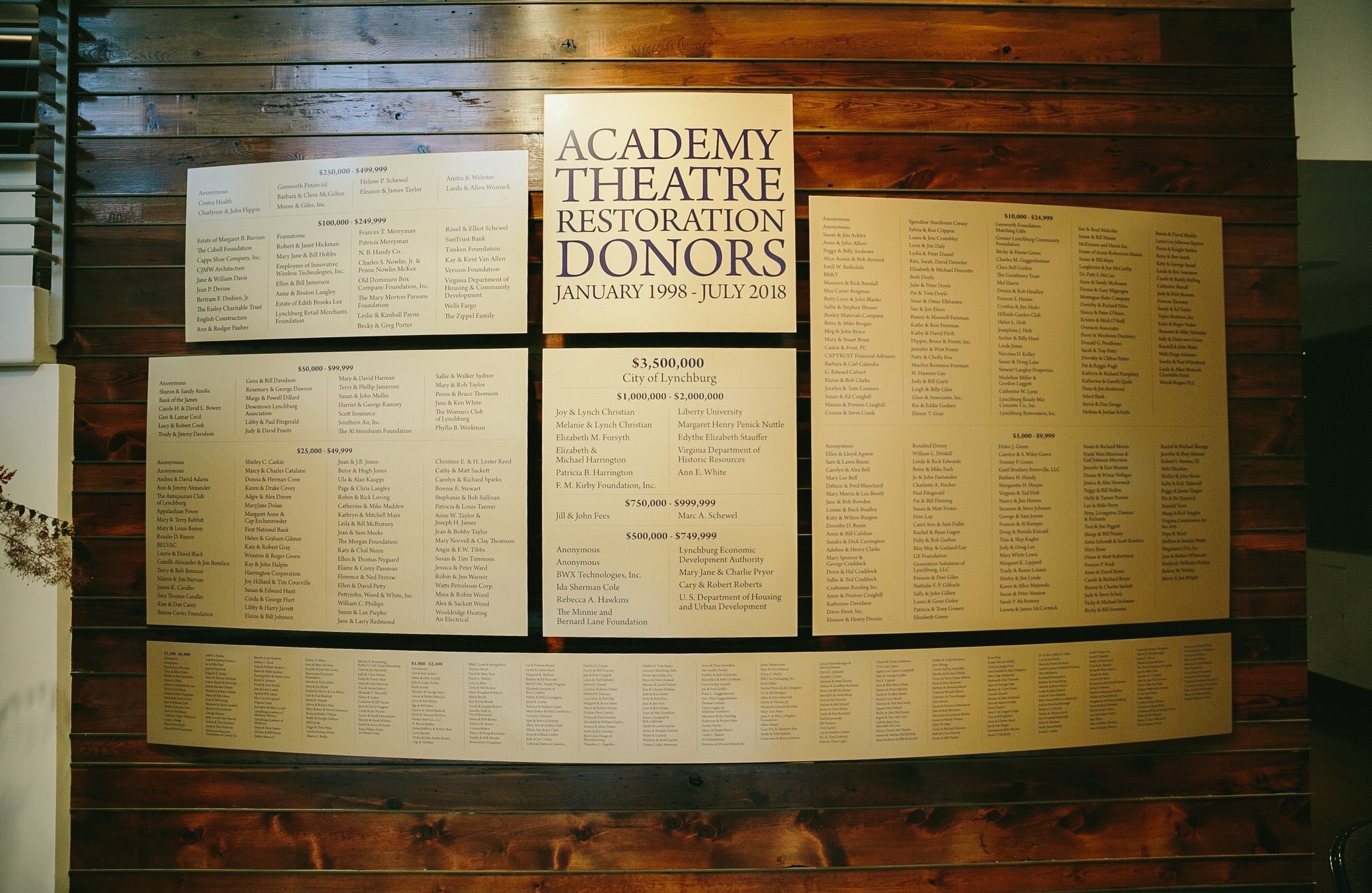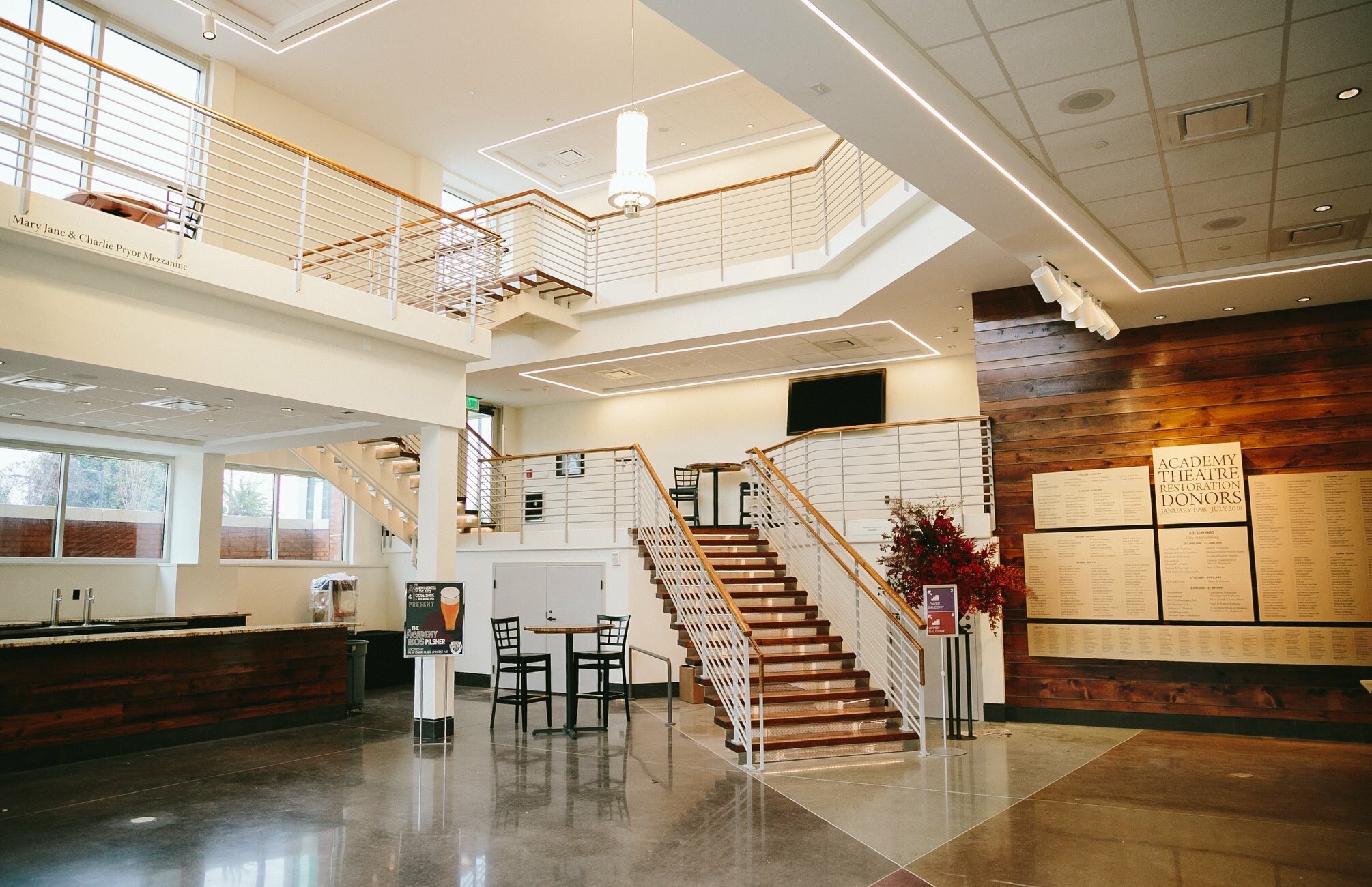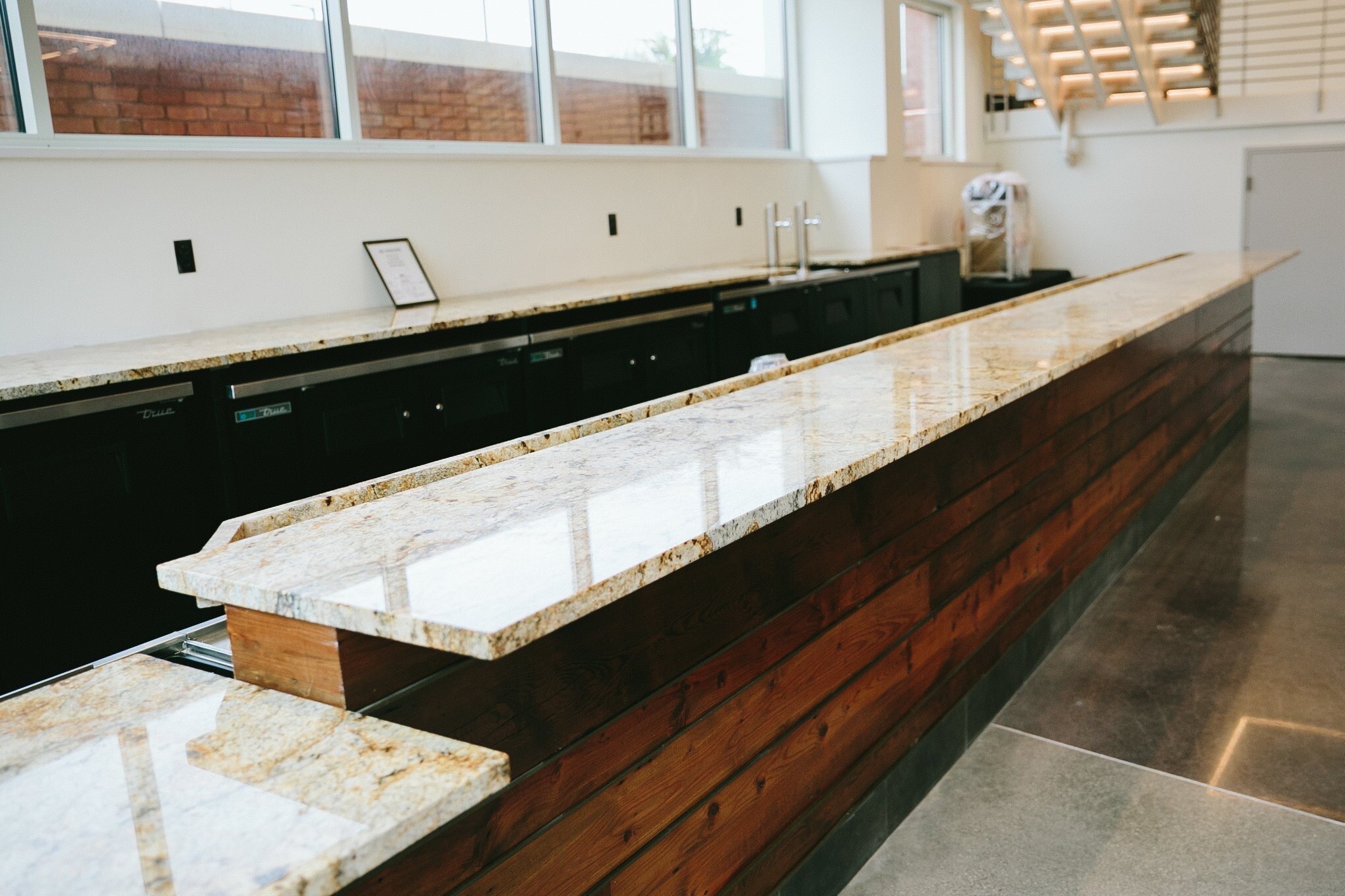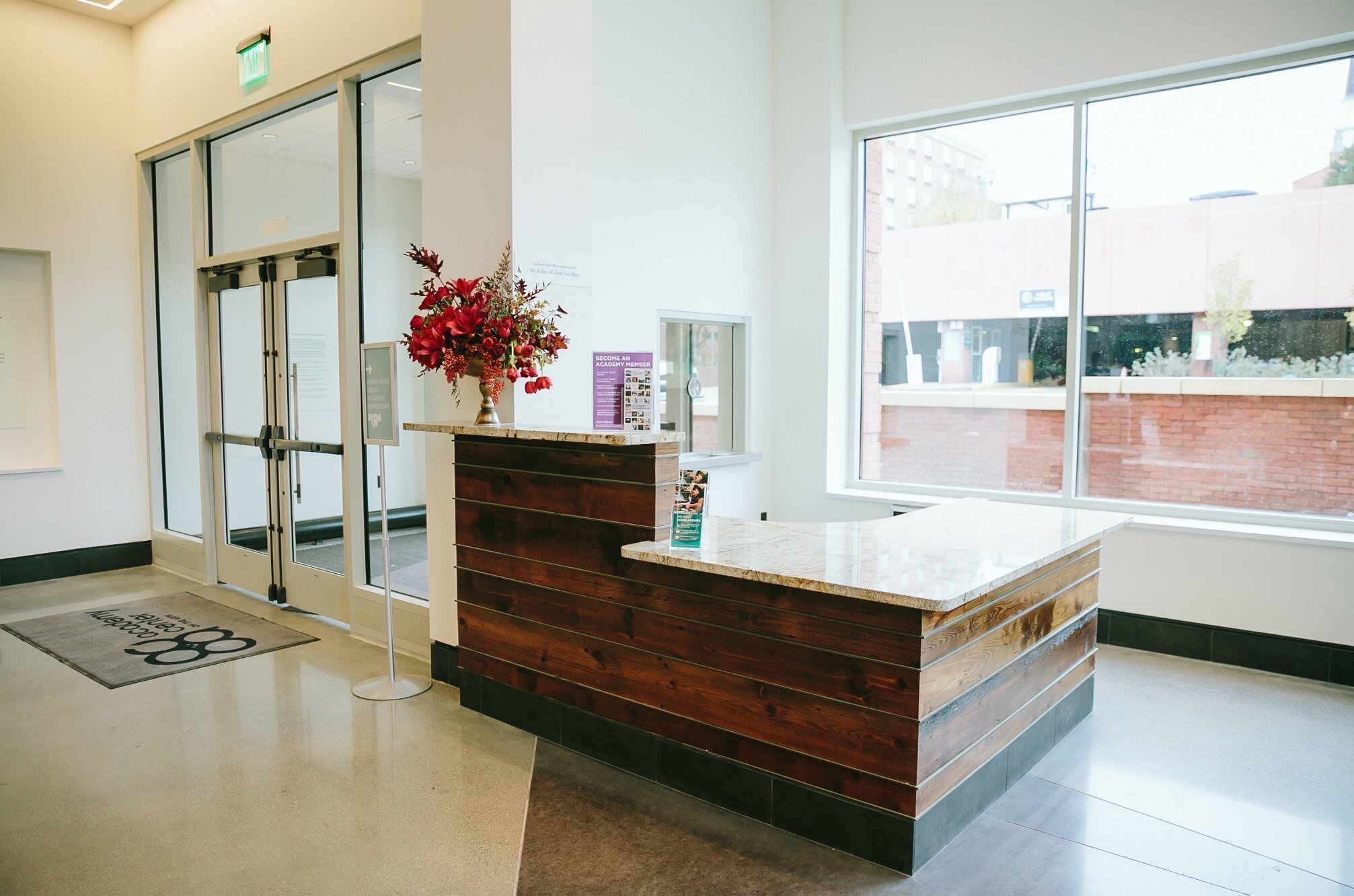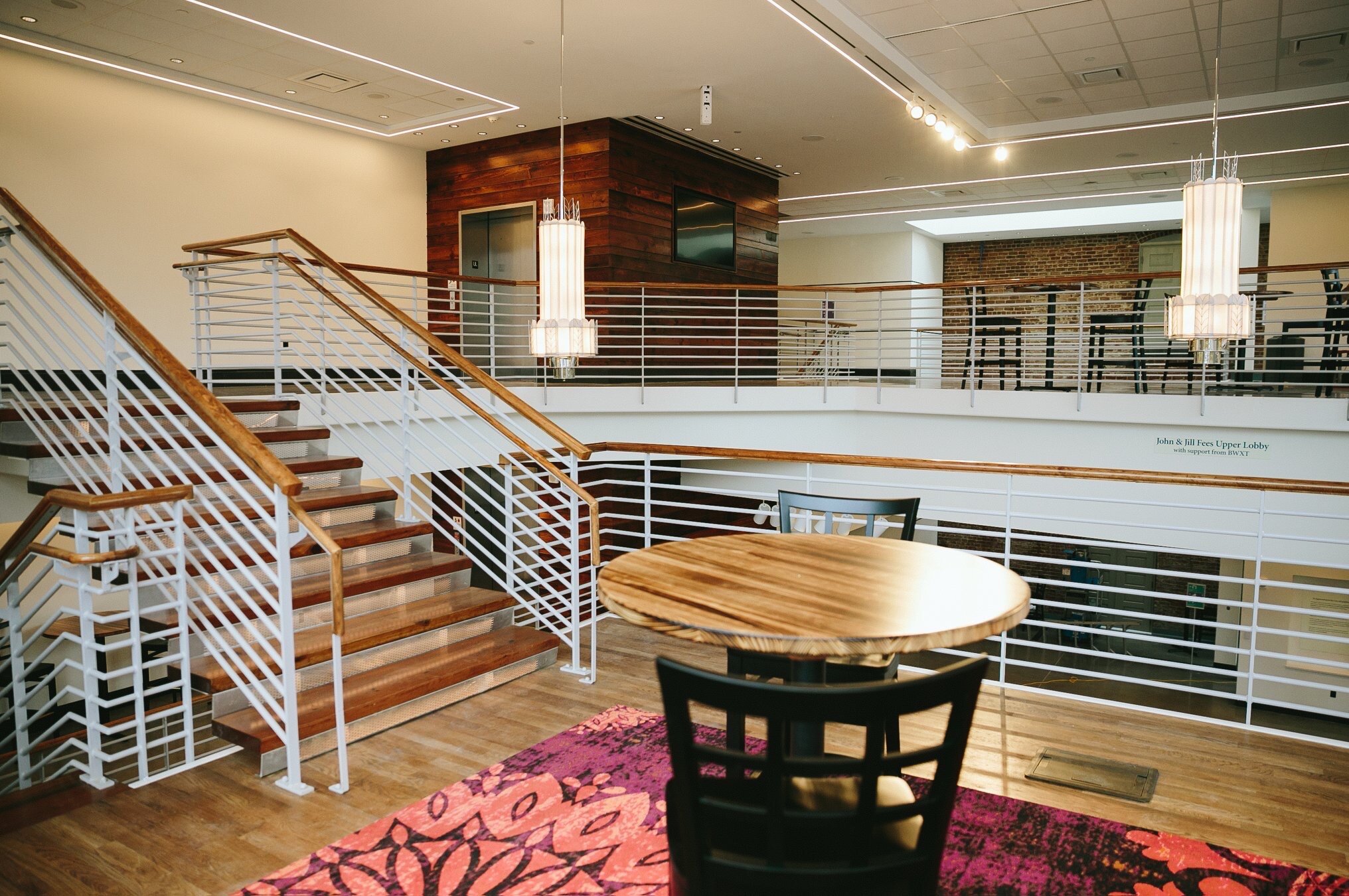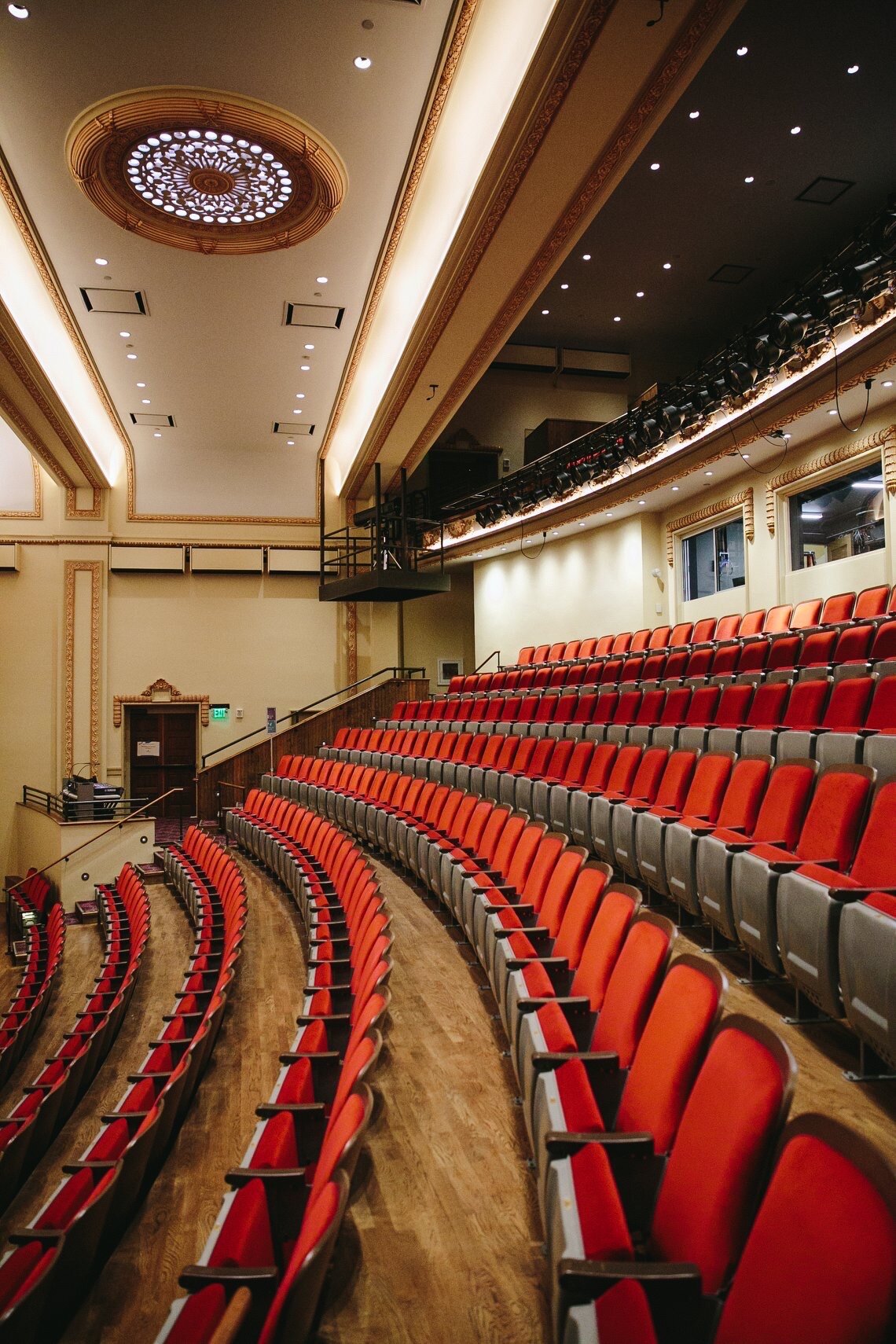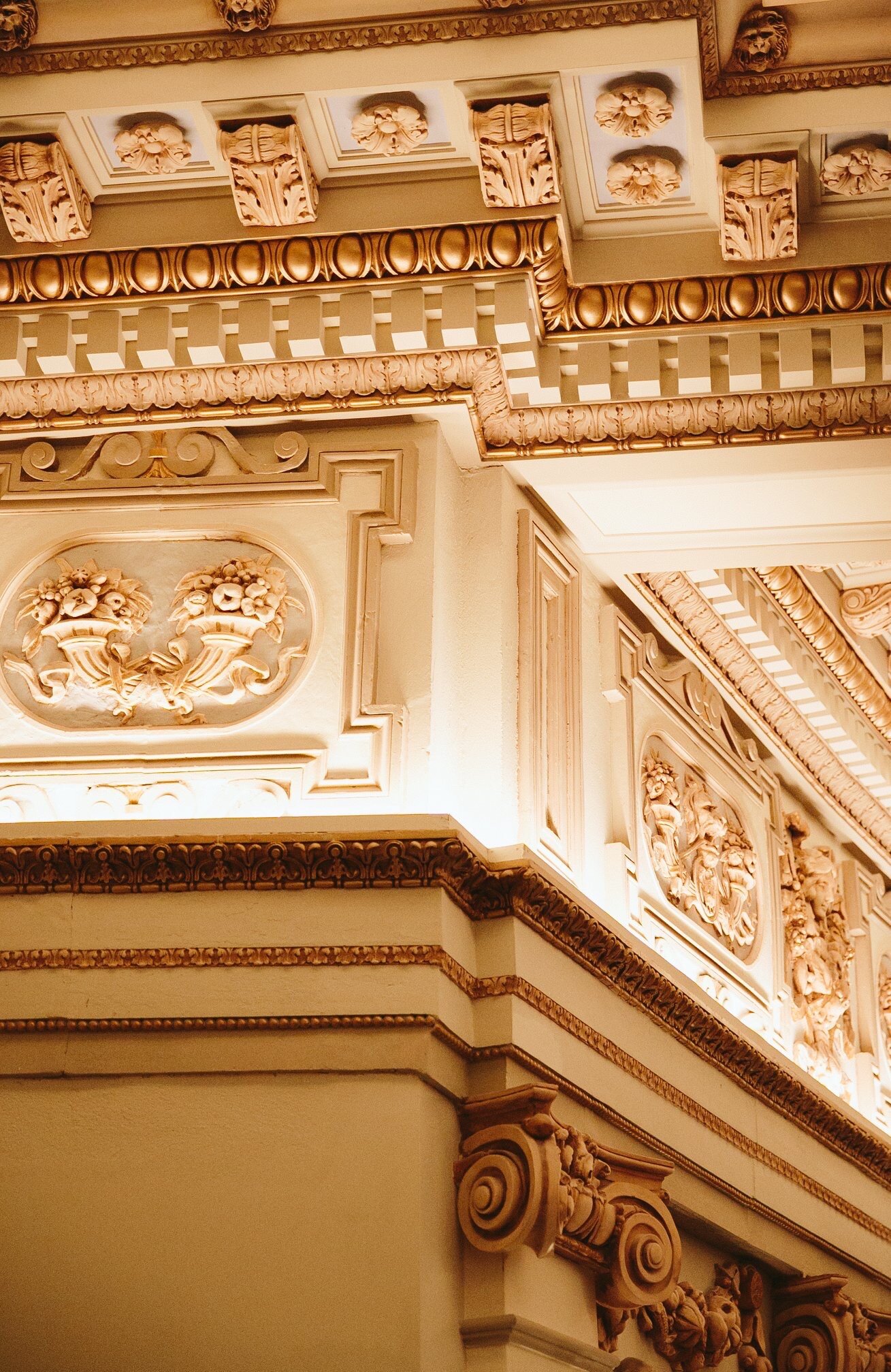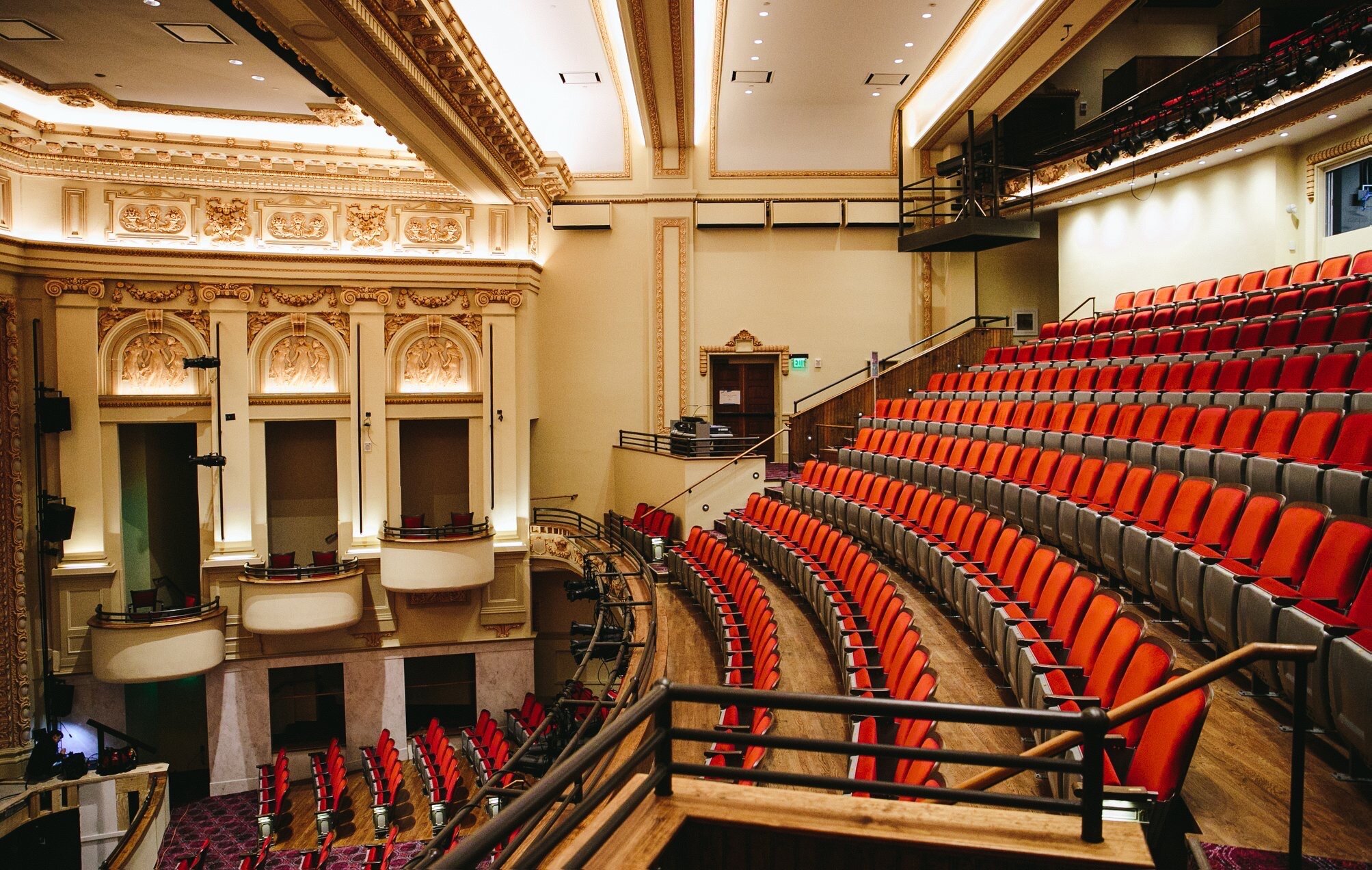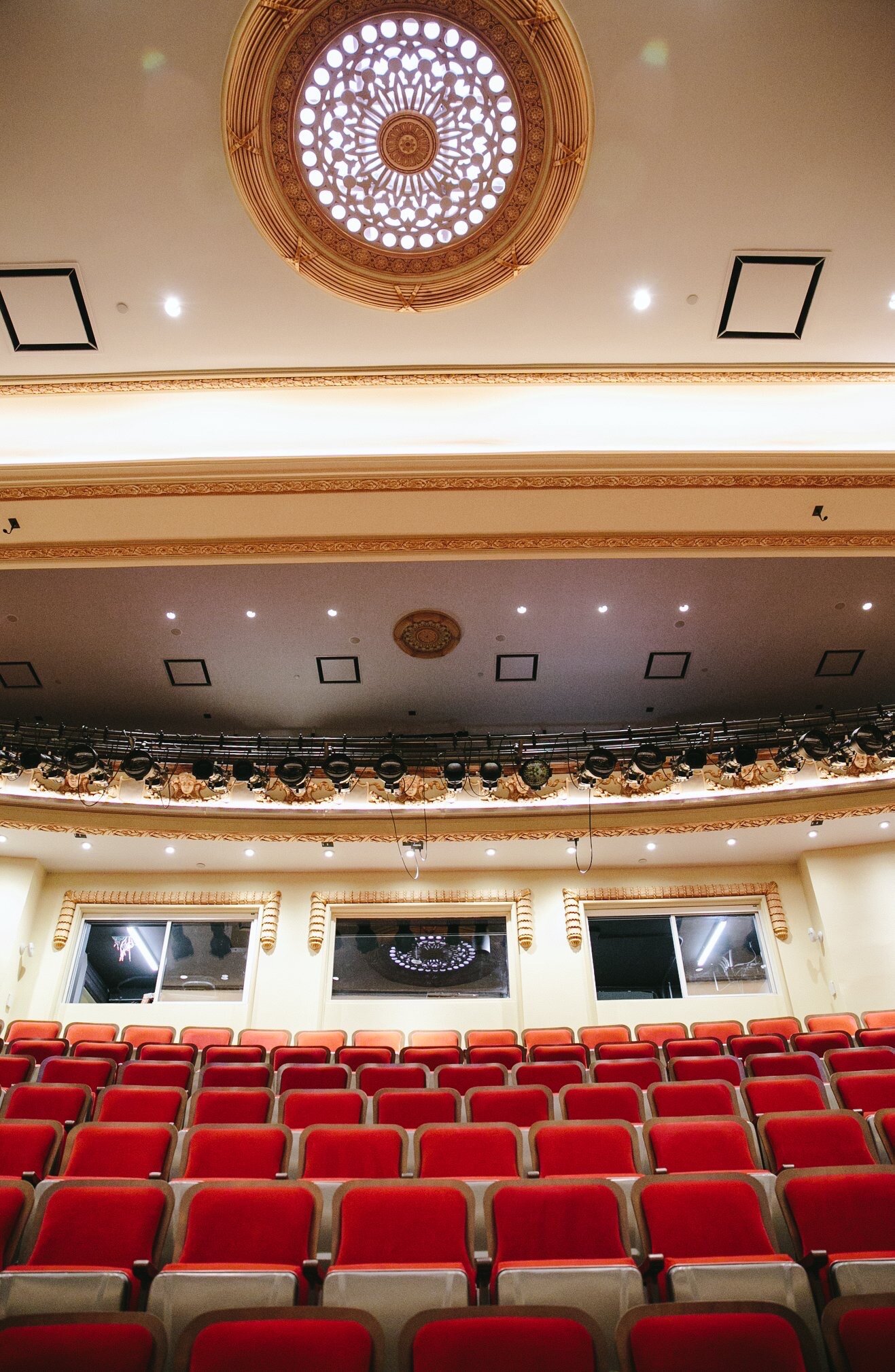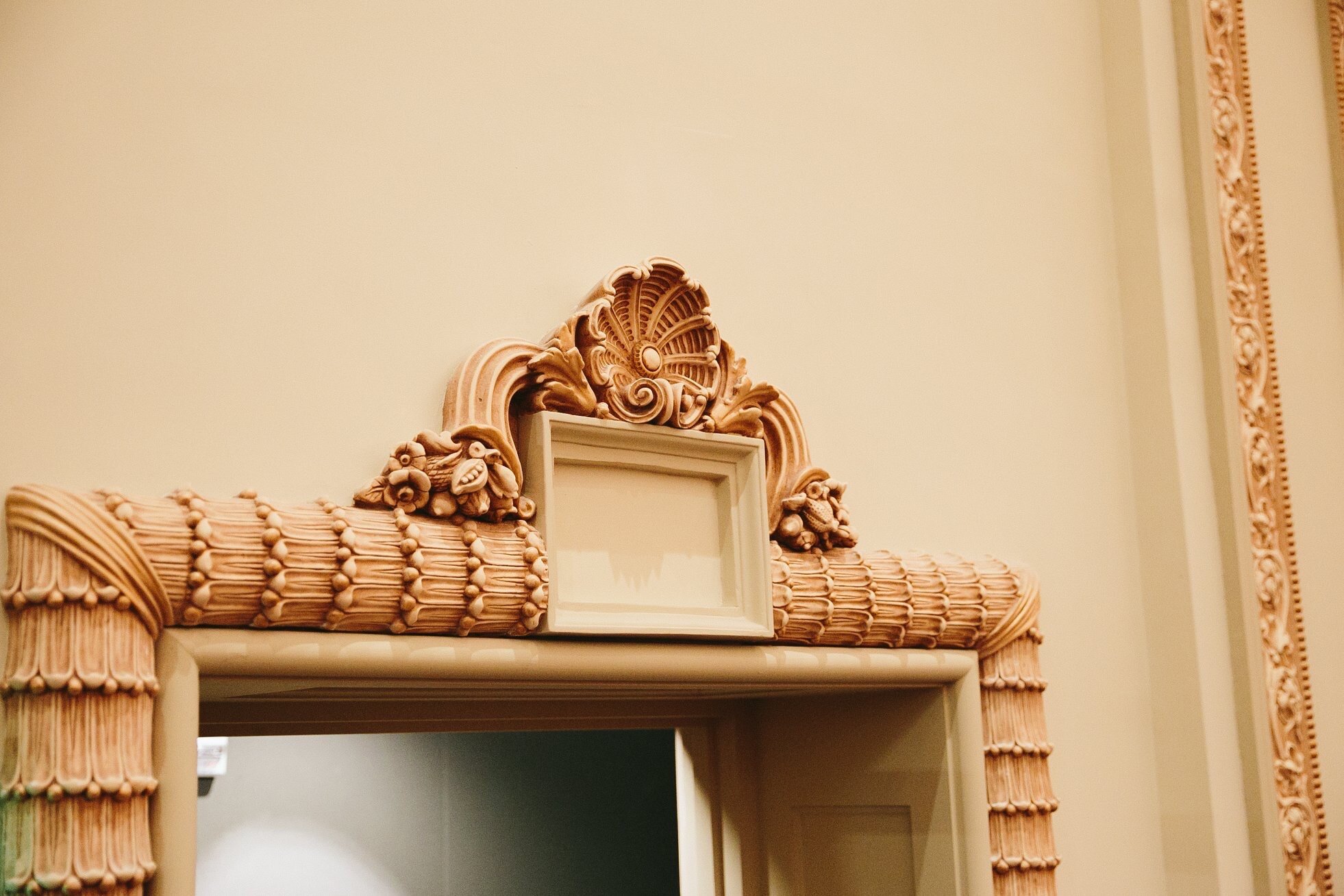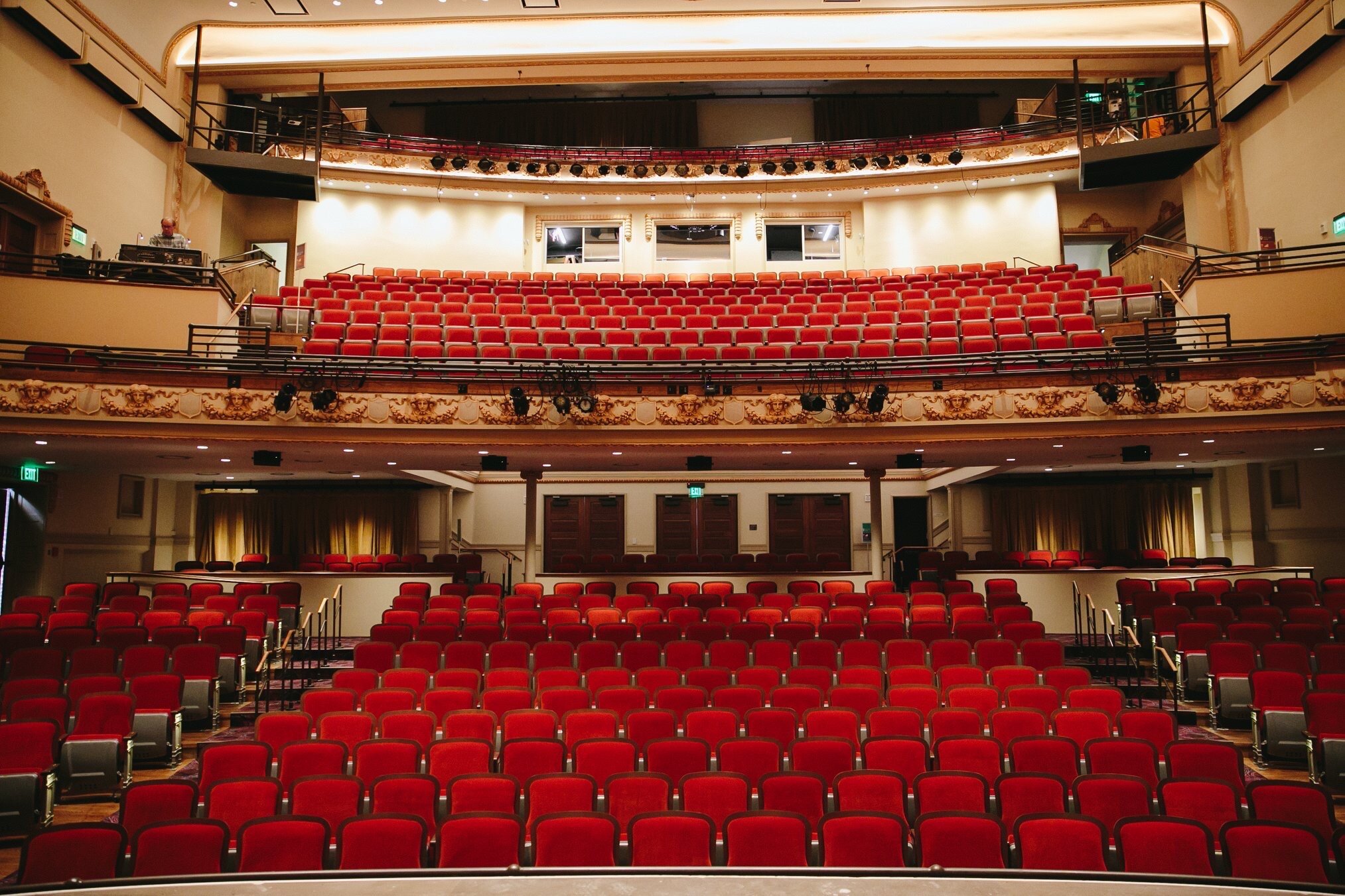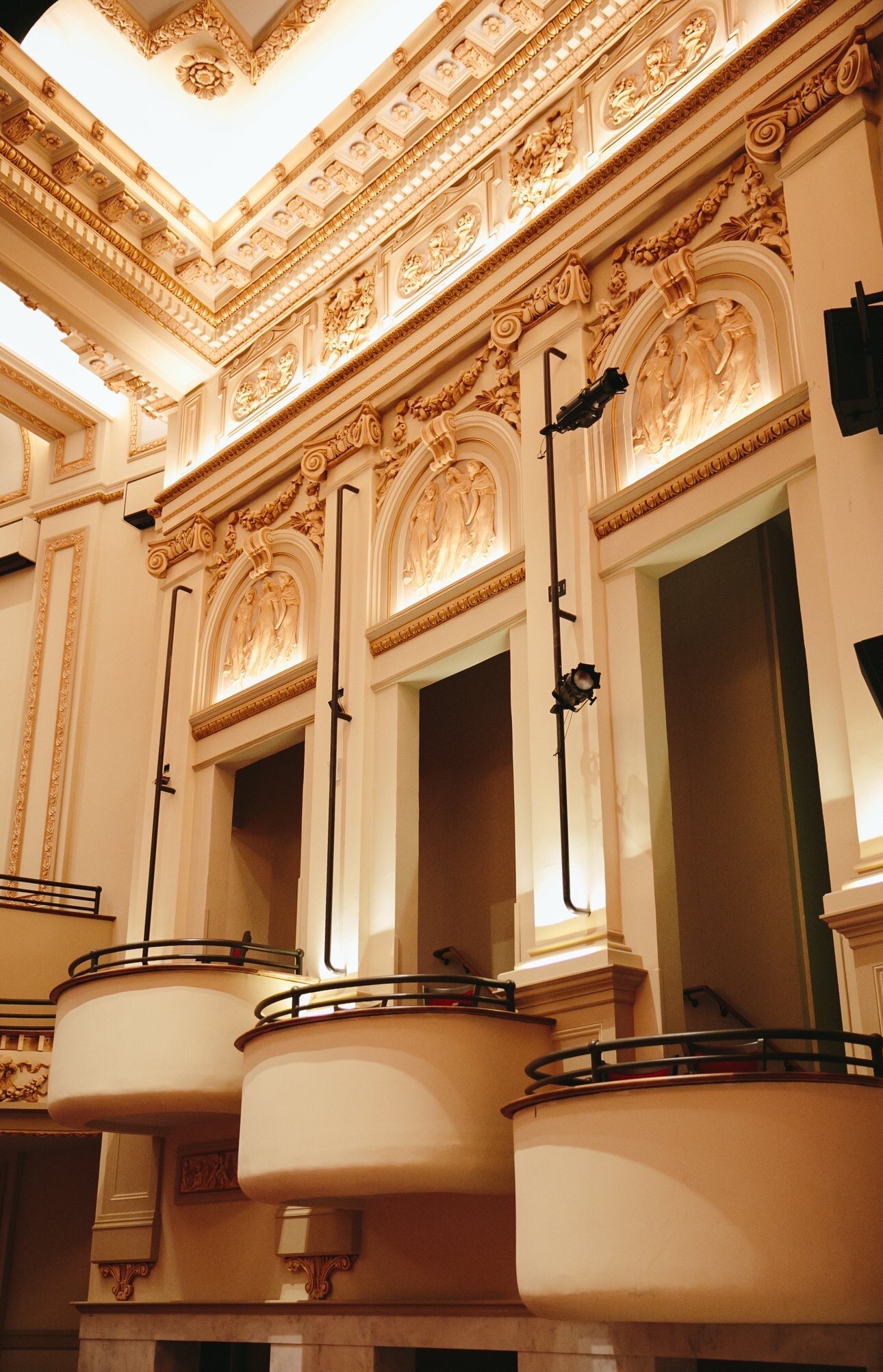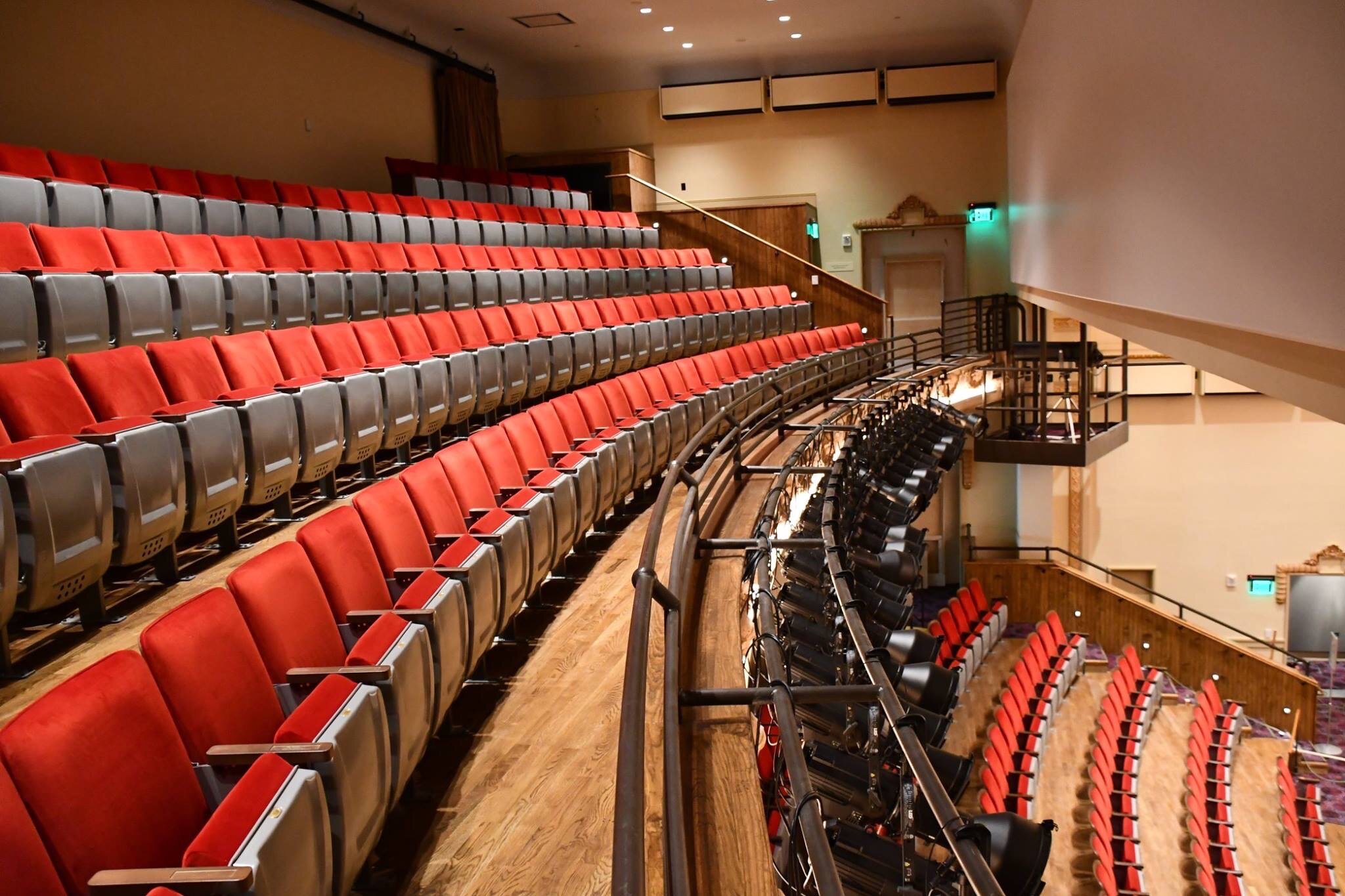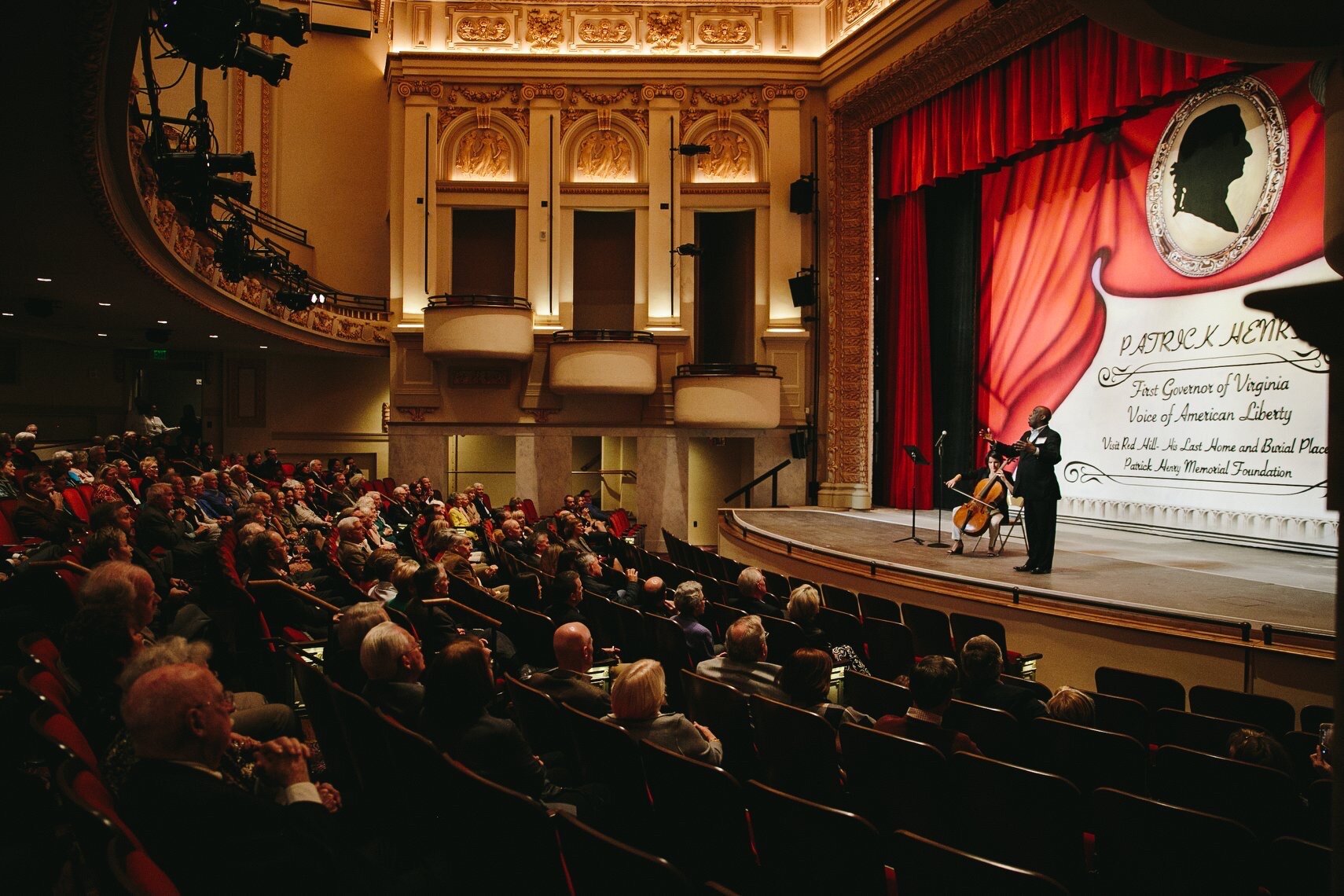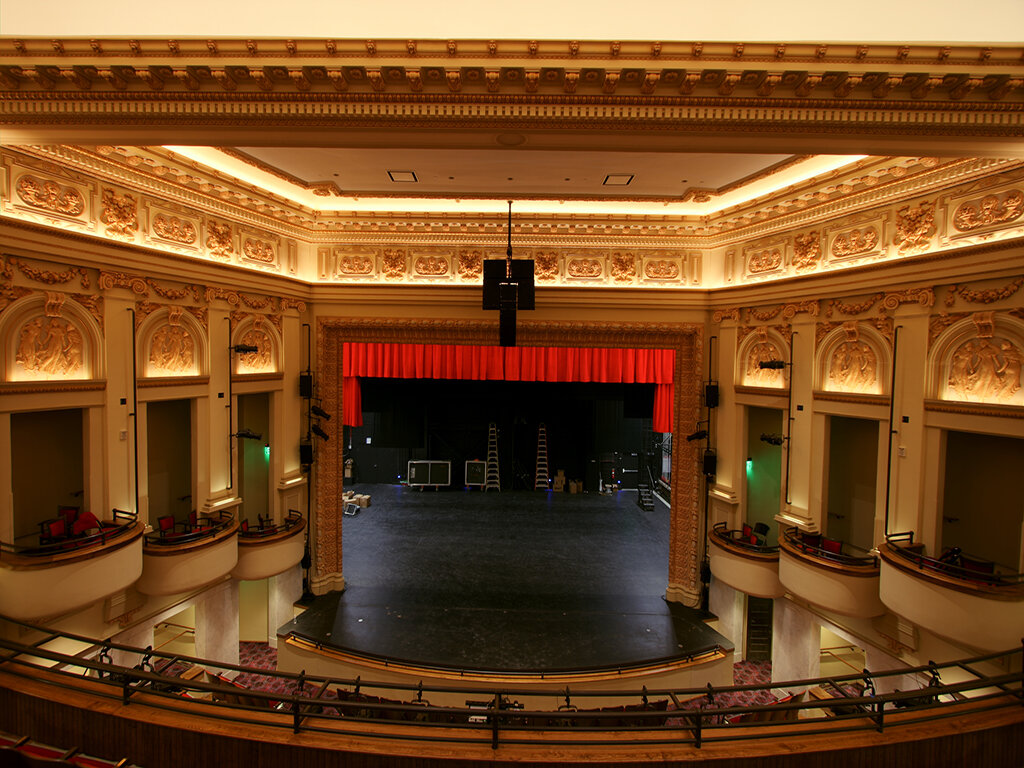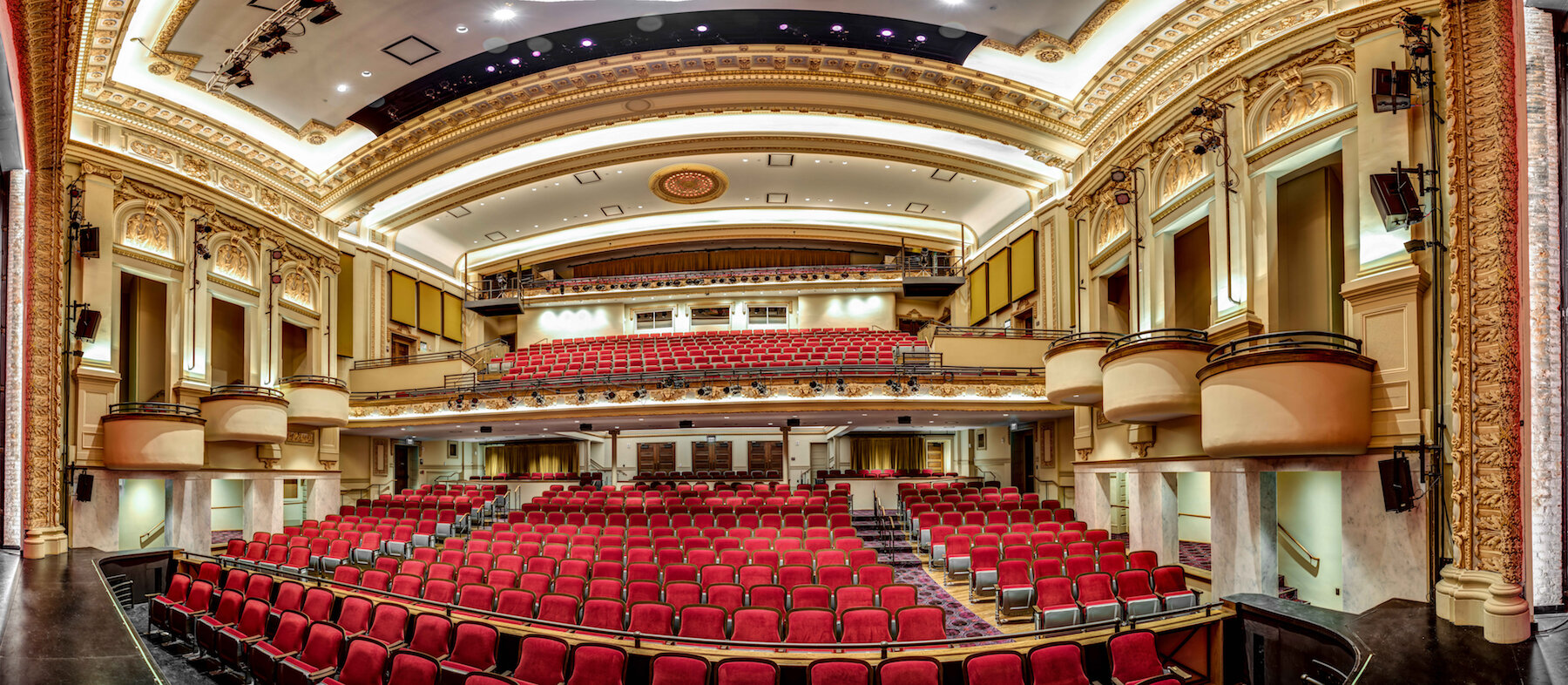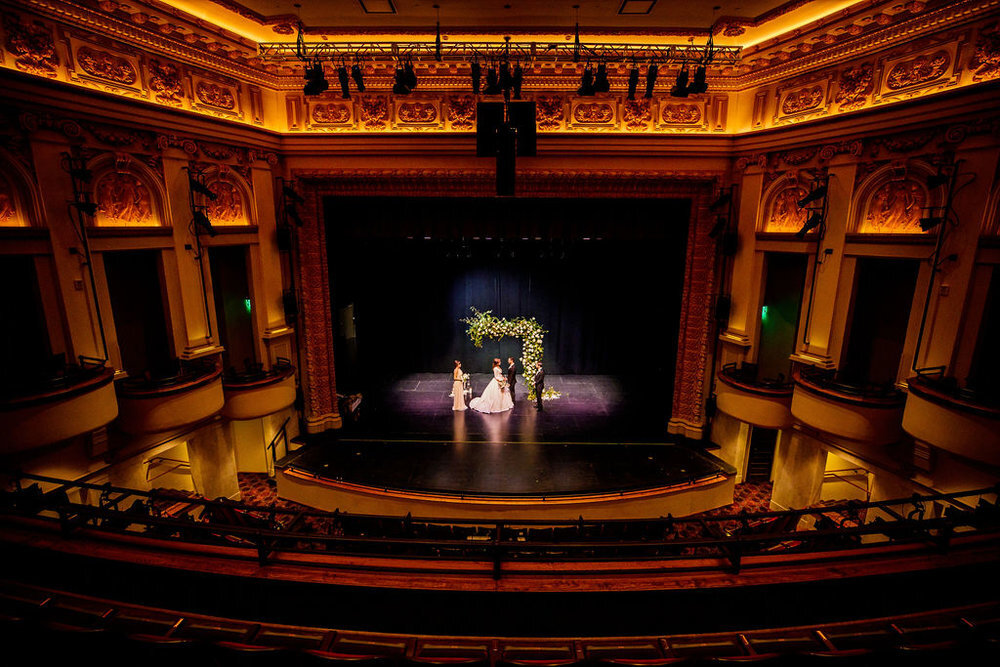THE HISTORIC ACADEMY CENTER OF THE ARTS THEATRE
About: The Historic Academy of Music Theatre is one of Lynchburg’s most notable historical treasures. First opened on February 1, 1905, the theatre boasted perfect sightlines and extraordinary acoustics, attracting nationally acclaimed performing artists. After closing its doors in 1958, the theatre had remained unused for 60 years. Through the efforts of the Academy Center of the Arts' board and staff, as well as the dedicated members of the community, the restorations of the Historic Theatre were brought to completion and the theatre was reopened on December 6, 2018.
History Behind The Academy: The Academy of Music Theatre was opened February 1, 1905, and over the next six years grew to become one of the most prominent and well-attended theatres in Central Virginia. In a typical week, the Academy presented as many as nine live events, ranging from individual artists to full musicals with casts of up to a hundred performers, to the popular silent films of the day.The Academy of Music Theatre was originally built largely due to the efforts of Richard D. Apperson, owner of the Lynchburg Traction and Light Company. Apperson also became the Academy of Music’s first president.Due to a fire in 1911, which destroyed a substantial portion of the theatre, it closed for almost an entire year. In 1912, local business leader Charles Guggenheimer and his assemblage of over twenty investors brought the theatre back to life. The repaired Academy of Music Theatre was reopened in 1912, thanks to the work of nationally renowned theatre designer, C.K. Howell, and was now more ornate and better lit.The theatre continued to host notable actors and performers in the years that followed. However, as “show business” began to slowly die with the rising popularity of films, the theatre began to present fewer live performances and segued into primarily showing films.Through the years, people’s entertainment and shopping habits changed radically, affecting theatres and movie houses in cities across America. After fighting to remain open for several years, the theatre finally closed its doors in 1958, the last of the nine theatres Lynchburg used to boast.As integration in Lynchburg did not occur until the 1960s, the theatre remained a segregated space until its closing in 1958. The reopening of the theatre in 2018 was the first time that space was integrated, 60 years later.Opening week at the Academy was filled with events and performances that celebrated the restoration of the historic space. The week began with an evening of reflection and celebration of the theatre as a place where all are welcome, emceed by former NASA astronaut, Leland Melvin. The night began with the presentation of three awards recognizing the contributions of community members who have made invaluable contributions to arts and culture in Lynchburg. The concert portion of the evening that followed began with an opening performance by musician Devon Gilfillian. To end the night, Grammy award-winning R&B-gospel singer and civil rights activist Mavis Staples took the stage.In addition to this evening, Opening Week activities also hosted performances by the Charlottesville Ballet, the Lynchburg Symphony Orchestra and Youth Orchestra, Jefferson Choral Society, Thomas Jefferson's Poplar Forest, Opera on the James, Endstation Theatre Company, and an evening of jazz with the Jazz at Lincoln Center Orchestra, headed by Wynton Marsalis.The Historic Academy of Music Theatre will continue to provide the community with an incredible historic space in which to enjoy live performances, films, concerts, and more.
PHOTOS
